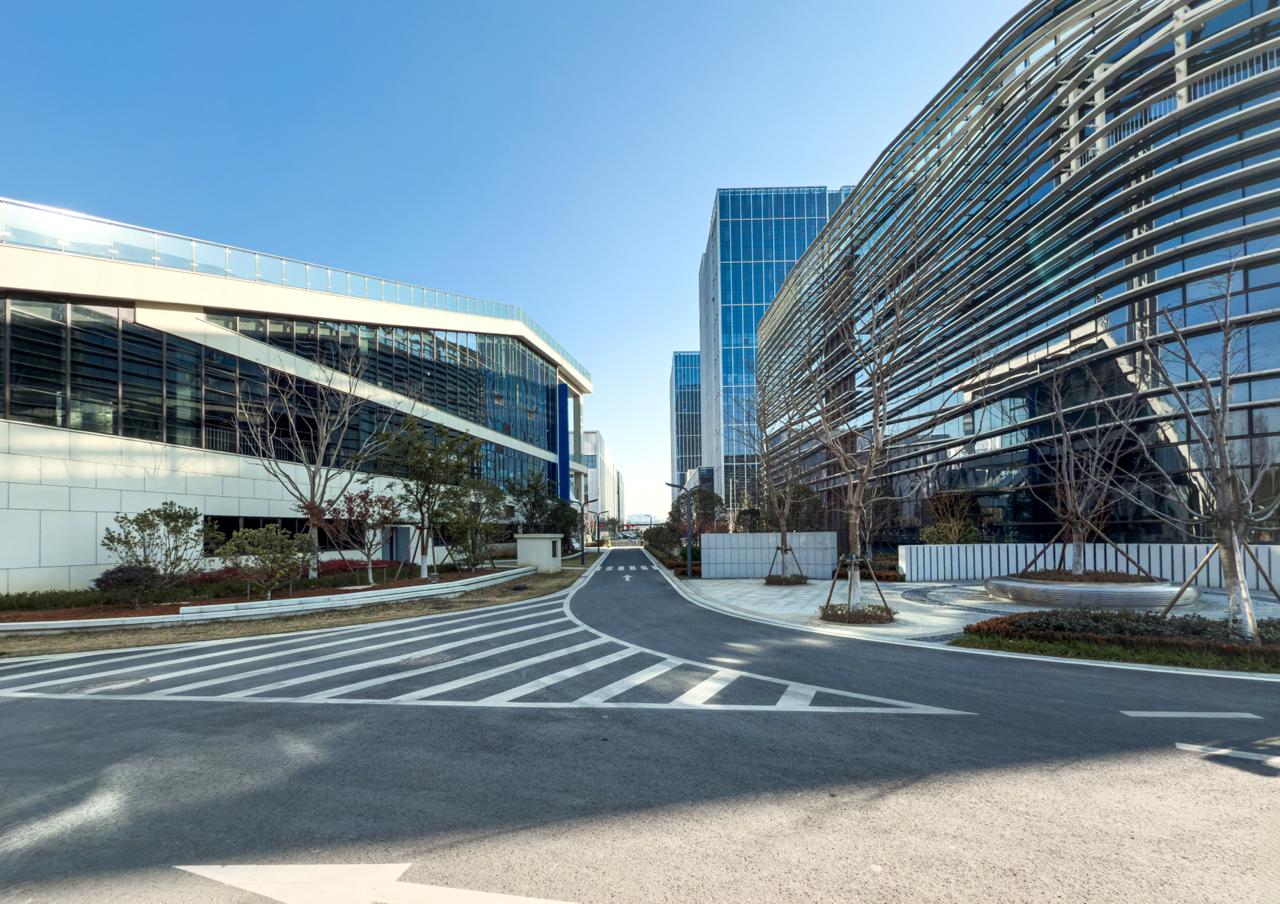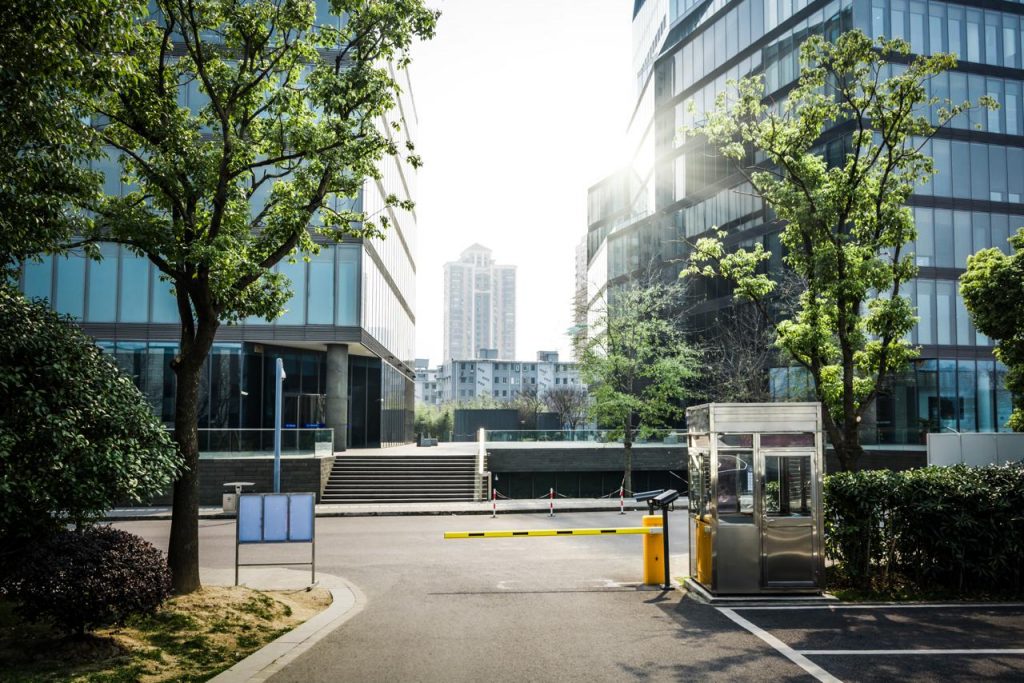
Hi-Tech Park (HTP) vs Skolkovo Innovation Center
Amid the rapid advancement of technology and growing competition in the global market, an increasing number of IT companies are…
Amid the rapid advancement of technology and growing competition in the global market, an increasing number of IT companies are seeking jurisdictions with favorable tax regimes, flexible labor regulations, and access to talent. Eastern Europe and the CIS countries have become attractive locations for high-tech businesses, thanks in part to the establishment of specialized technology parks and innovation clusters.
The Hi-Tech Park (HTP) in Belarus and the Skolkovo Innovation Center in Russia are two leading initiatives supporting IT companies in the post-Soviet space. Both projects were launched to stimulate the digital economy, attract investments, and create conditions for the development of startups and large-scale IT ventures. However, despite their common goals, these entities differ significantly in their legal, tax, and organizational models.
In this article, we provide a detailed comparison of HTP and Skolkovo to help entrepreneurs, investors, and IT specialists understand which of these leaders offers a more favorable environment for doing business in 2025. We will review:
- Residency conditions
- Tax and legal incentives
- Talent availability and market access
- Infrastructure and government support
If you are choosing between Belarus and Russia as a base for launching or relocating an IT business, this material will serve as a useful guide.
Overview of HTP and Skolkovo
The Hi-Tech Park (HTP) was established in Belarus in 2005 as a special legal regime aimed at developing the IT sector and attracting foreign investment into the country’s economy. Its launch was a response to the rapidly growing global demand for digital solutions and IT outsourcing services. HTP is not a physical zone but an extraterritorial legal framework that operates throughout Belarus. The main objective is to create conditions under which IT companies can grow, export software, and develop innovative products without facing excessive administrative or tax burdens.
The Skolkovo Innovation Center, launched in Russia in 2010, was conceived as a Russian equivalent of Silicon Valley, a comprehensive innovation ecosystem with its campus, development institutes, venture fund, and support at all stages of a technology business lifecycle. Initiated and funded by the government, the project has a strong focus on applied science. It aims to boost key industries ranging from IT and medicine to nuclear energy and space exploration.
Government Support and Status
Both projects were created with active government involvement and operate under state patronage. In Belarus, HTP is governed by Presidential Decree No. 8 “On the Development of the Digital Economy” and forms part of the national digitalization strategy. It enjoys a high degree of autonomy in decision-making and is considered one of the most successful IT regulatory frameworks in the post-Soviet space.
Skolkovo is a state non-profit organization overseen by the Skolkovo Foundation. It is supported at the highest levels of the Russian government, including the Ministry of Economic Development and leading federal institutions. The center is integrated into Russia’s scientific and technical policy and often participates in major national technology initiatives.
Core Activities and Resident Specializations
Initially, HTP focused on software development and outsourcing, but since 2017, following legislative updates, its specialization has expanded significantly. Today, its residents operate in areas such as artificial intelligence, fintech, game development, blockchain, biotechnology, and the Internet of Things. Export orientation is a key priority: most HTP companies target international markets and generate revenue in foreign currencies.
Skolkovo positions itself as a hub for applied innovation. Its main clusters include information technology, biomedicine, energy efficiency, industrial technologies, and space. Residents range from startups at the MVP stage to large scientific and manufacturing companies working on proprietary technologies. The ecosystem also actively develops research centers, the Skoltech university, and acceleration programs.
Residency Eligibility
HTP is open to both Belarusian companies and those with foreign investment registered in Belarus. Residents can be legal entities or sole proprietors engaged in one or more activities listed among the approved types of business for HTP. These include software development, AI, cybersecurity, game development, blockchain, data processing, and other high-tech fields.
The Skolkovo Innovation Center targets Russian legal entities engaged in scientific, technical, or innovative activities. Residents may be startups or established companies working within one of five focus areas (IT, biomedicine, energy efficiency, space, nuclear technology) and developing proprietary products with a high degree of scientific novelty.
Application Procedure
For HTP, applications are submitted through the Secretariat of the HTP Supervisory Board. Companies provide a package of documents including a business project description and information about participants and management. The review process has two stages: a preliminary evaluation followed by a Supervisory Board decision.
At Skolkovo, applications are submitted online via the official portal. Companies fill out a form, attach a project description and presentation materials, and confirm compliance with innovation criteria. The application undergoes expert evaluation focusing on technological novelty and commercial potential. The decision is made by the Skolkovo Foundation.
Key Requirements for Companies and Projects
For HTP, the main requirement is that the company or sole proprietor’s activities match the approved list. The business must be technology-oriented or innovative, show export potential, and have a scalable project. There are no minimum revenue or employee thresholds, making HTP accessible even to small companies or startups.
For Skolkovo, the most critical criterion is the presence of a research component. The project must demonstrate technological know-how protected or protectable by intellectual property. The company must conduct R&D in Russia and employ a scientific project leader. Startups are expected to have a clear roadmap and commercialization strategy.
Timelines and Bureaucracy
Joining HTP typically takes between 1 to 3 months. The process is streamlined with minimal bureaucracy. The HTP Secretariat actively supports candidates at all stages.
Skolkovo’s application review takes about 1.5 to 2 months. Due to mandatory scientific evaluations and the need for additional documentation, the process may be longer. However, the Foundation offers methodological support and consulting on document preparation.
Tax and Financial Incentives
Tax attractiveness is a key factor for IT companies choosing a jurisdiction. Both HTP and Skolkovo provide residents with special tax regimes that significantly reduce fiscal burdens. However, the approaches to business incentives in Belarus and Russia differ in both the structure of benefits and the conditions of their application.

Tax Reductions and Exemptions
Hi-Tech Park (HTP), Belarus offers one of the most favorable tax regimes in Eastern Europe. Residents are exempt from most taxes, including:
- Corporate income tax: 0% instead of the standard 20%.
- VAT: 0% instead of 20%.
- Land and property tax: 0% if owning real estate within the HTP territory.
- Customs duties: 0% on imported equipment used for operations.
- Dividend tax: residents do not pay tax on dividends received from foreign organizations.
Skolkovo Innovation Center, Russia also provides significant tax reliefs:
- Corporate income tax: reduced to 0% (federal part) and 0% or 3% (regional part, depending on the region).
- VAT exemption: applicable except for cases of goods import into Russia.
- Property, land, and transport taxes: 0%.
- Social insurance contributions: 30% rate applied up to one minimum wage (MROT). For earnings above 1.5 MROT, a reduced rate of 15% applies to the excess.
Conditions for Applying Tax Benefits
In HTP, tax benefits apply immediately upon obtaining resident status, provided the company operates within the approved activity list. No additional certifications or filings are required, but compliance with reporting standards and the targeted use of income is mandatory.
In Skolkovo, tax benefits last for 10 years from the date of residency approval. To maintain benefits, companies must annually confirm their innovative status, keep accounting in a prescribed format, invest in R&D, and adhere to targeted income usage rules. Non-compliance can lead to revocation of benefits.
Reporting Obligations
HTP residents maintain standard accounting and tax reports. Additionally, quarterly and annual reports are submitted to the HTP Supervisory Board Secretariat, including data on revenue, employee numbers, investments, and export activities.
Skolkovo residents have dual reporting duties: besides standard tax filings, they submit annual innovation project reports and R&D expenditure documentation. The Skolkovo Foundation may conduct audits, request supporting documents, and evaluate project progress.
Practical Examples of Savings
A company with approximately $1 million annual revenue and 20 employees operating in export markets and registered with HTP may save around $200–250 thousand per year due to corporate income tax and VAT exemptions.
A similar company in Skolkovo with a significant R&D share could reduce its tax burden by 30–40% compared to the standard regime. The advantage is most notable for projects with high personnel, equipment, and research costs.
Thus, both regimes offer practical tax optimization tools but with differing philosophies: HTP emphasizes export orientation and minimal bureaucracy, while Skolkovo focuses on scientific innovation and monitoring of innovative activities.
Legal Framework and Regulation
The legal environment is crucial for building trust among tech companies, investors, and specialists. Both HTP and Skolkovo provide special legal regimes, yet differ in depth and flexibility. Below is an overview of resident regulation, contract opportunities, IP protection, and workforce management.
Contract Law and Investment Opportunities
HTP offers residents extended contractual capabilities. Legal entities within HTP can enter civil contracts governed not only by Belarusian law but also by foreign laws. This simplifies attracting investments and engaging with international partners, particularly in venture capital and export contracts.
Companies can also use electronic documentation, including e-contracts, reducing operational costs and increasing business process flexibility.
Skolkovo provides some freedom in contractual activities but strictly under Russian civil law. Residents can attract investments, including via venture funds associated with the Skolkovo Foundation. However, foreign law choice and arbitration options are limited, potentially hindering some foreign investors.
Interaction with Government Authorities
In Belarus, HTP residents interact with the Secretariat of the HTP Supervisory Board, which coordinates the legal regime and supports companies throughout all stages: from application to business expansion. The Secretariat is not a government body, allowing it to act flexibly as a “single window,” minimizing administrative burden.
In Russia, Skolkovo residents work with the Skolkovo Foundation, which acts as coordinator and regulator. Unlike HTP, the Foundation cannot provide an extraterritorial legal regime, companies must comply with general federal legislation and sometimes obtain approvals from ministries or agencies.
Intellectual Property Protection
HTP offers favorable conditions for IP protection. Residents may assign exclusive rights to intellectual property results, use international licensing schemes, and register IP objects abroad. Simplified accounting for IP transactions is supported, which is particularly valuable for product companies and startups.
Skolkovo actively promotes IP protection, providing consultations and subsidies for patenting, including international filings (e.g., under the PCT system). However, IP enforcement in Russia remains complex and less predictable, especially for smaller companies.
Flexibility in Hiring and Working with Foreign Specialists
HTP offers a highly simplified procedure for hiring foreign specialists. Residents do not need special permits, quotas, or work authorizations to employ foreign nationals. It is one of the few regimes in the region with flexible labor and tax arrangements for IT professionals, including remote workers.
Skolkovo also provides certain preferences for hiring foreigners: expedited visas, temporary residence permits, and work permits for employees and their families. Nevertheless, migration procedures are generally more formalized and regulated than in HTP, which can affect scaling international teams rapidly.
Final thoughts: HTP offers a more flexible and internationally oriented legal model, especially in contract law and foreign workforce management. While Skolkovo actively supports innovation, it is more integrated into Russia’s general legal framework and does not provide an extraterritorial regulatory regime.
Infrastructure and Ecosystem
The successful development of an IT company depends not only on tax incentives and legal frameworks but also on the surrounding business environment. The ecosystem in which a resident operates affects access to partners, venture investors, talent, and applied knowledge. The HTP and Skolkovo have built different infrastructure support models, from an extraterritorial legal regime to a full-fledged physical campus.
Availability of Office Space, Coworking Areas, and Tech Parks
The Belarus Hi-Tech Park (HTP) is not a physical tech park but an extraterritorial legal regime, meaning companies can be located in any city in the country. This gives residents the flexibility to choose their location, including renting offices in Minsk, regional centers, or operating entirely remotely. That said, there is a designated territory in Minsk where the HTP’s management company is based, and where companies and individual entrepreneurs (IEs) that are HTP residents can lease office space. In other Belarusian cities, modern infrastructure is gradually emerging in business centers, IT hubs, coworking spaces, and university-based campuses, enabling companies to place teams and develop local offices comfortably.
In contrast, Skolkovo is a physical innovation zone with its territory, campus, laboratories, office buildings, and residential infrastructure. Residents can lease premises directly within the center or in nearby areas. This is particularly convenient for startups in engineering, biotechnology, and industrial sectors, where physical presence and access to equipment are crucial.
Opportunities for Startups and Acceleration Programs
HTP offers several forms of support for startups: educational initiatives, mentoring, and access to international partnerships and technology growth programs. The HTP ecosystem includes active private and corporate accelerators, as well as business angels and venture capital funds focused on both Belarusian and international projects.
Skolkovo boasts a broad network of in-house accelerators, grant programs, and partnerships with corporations and research institutions. Startups can receive funding from the Skolkovo Foundation, use laboratories and infrastructure in the early stages, and participate in corporate acceleration tracks with mentor support. Institutional support here is more centralized and aimed at developing technology products with long life cycles.
Risks and Limitations
When choosing a jurisdiction for business registration, it is essential to consider not only current benefits but also potential risks related to the political environment, stability of the legal regime, and the possibility of regulatory changes. Both HTP and Skolkovo operate in countries with their specific contexts, which should be carefully considered, especially when planning long-term projects or team relocations.
Political and Economic Factors
HTP operates under conditions of limited access to international financial systems and sanction pressures from Western countries. These factors pose risks for cross-border transactions, opening foreign bank accounts, and attracting foreign investment. Nevertheless, many Belarusian IT companies have adapted: they establish holding structures, register intellectual property abroad, use alternative payment channels, and work with clients through foreign legal entities.
Despite external challenges, the Belarusian IT sector continues to demonstrate resilience, and HTP remains the core of the country’s digital economy. However, investors and international partners carefully assess reputational risks when working with companies registered in Belarus.
Similarly, Skolkovo (Russia) faces geopolitical challenges. The Russian market is affected by sanctions, currency restrictions, and state controls. As a result, foreign investment inflow has decreased, and access to global tech platforms has become more difficult. Despite active government support, the Skolkovo ecosystem is gradually refocusing on the domestic market, which may limit scalability for export-oriented businesses.
Potential Changes in the HTP and Skolkovo Regimes
Since the major reform in 2017, HTP’s residency conditions have remained essentially unchanged. However, the professional community occasionally discusses possible adjustments, from expanding the list of eligible business activities to altering the taxation mechanism. There is also a dependency on the composition of the Supervisory Board and the political priorities of the country.
Residents need to understand that the HTP regime is not permanent: its conditions may be revised. Although HTP remains one of the most stable business platforms in the country, there is no guarantee that all benefits will be preserved indefinitely.
As for Skolkovo, recent years have seen a trend toward greater centralization and integration into the national system of state support. Changes in tax incentives, stricter requirements for obtaining residency, and increased reporting burdens are all possible. At the same time, Skolkovo continues to be actively promoted as part of Russia’s science and technology strategy, and changes typically align with the overall push for technological sovereignty.
Thus, key risks for residents of both HTP and Skolkovo include geopolitical instability, legal dependence on political will, and a limited planning horizon. These factors must be taken into account when choosing a jurisdiction and building a long-term business strategy.
Conclusion
HTP in Belarus and the Skolkovo Innovation Center in Russia represent two different approaches to high-tech business development in the post-Soviet space.
HTP offers a flexible, extraterritorial regime with an international legal orientation, simple conditions for conducting export-oriented IT business, and minimal bureaucracy. It is an attractive choice for companies focused on global markets, remote work, and rapid growth.
Skolkovo focuses on centralized infrastructure, access to state subsidies, R&D capabilities, and physical integration of residents into an innovation cluster. It is especially appealing for research-heavy projects and product-oriented development.
When choosing between HTP and Skolkovo, it is essential to consider not only tax and legal advantages but also political risks, legal stability, the talent market, and your company’s goals. For export-oriented IT businesses with international teams, HTP is often the more flexible solution. At the same time, Skolkovo offers unique opportunities for scientific research and deep integration into the Russian market.
If you’re planning to enter the Belarusian or Russian market, register your business with HTP or Skolkovo, or set up a remote team—we’re here to help.
EOR.by provides a full range of Employer of Record (EOR) services, including:
- Legal employment of specialists
- Payroll and tax compliance
- HR and accounting support
- Assistance with relocation and permit documentation
We’ll support you on the path to launching or scaling your IT business in the proper jurisdiction efficiently, transparently, and in full compliance with legal requirements.
Our Blog
The latest news in our blog
“International Company” Status (for IT Companies)
For IT companies operating in international markets, the choice of jurisdiction and legal status is a critical factor for sustainable…
Congratulations on New Year 2026 from the EOR.by team!
Dear friends, partners and clients! The EOR.by team wholeheartedly wishes you a Happy New Year 2026! The past year has…
Decree on the High-Tech Park
The High-Tech Park (HTP) is one of the most well-known legal regimes in Belarus, which for many years has attracted…
Contact
We’re available for the new projects



